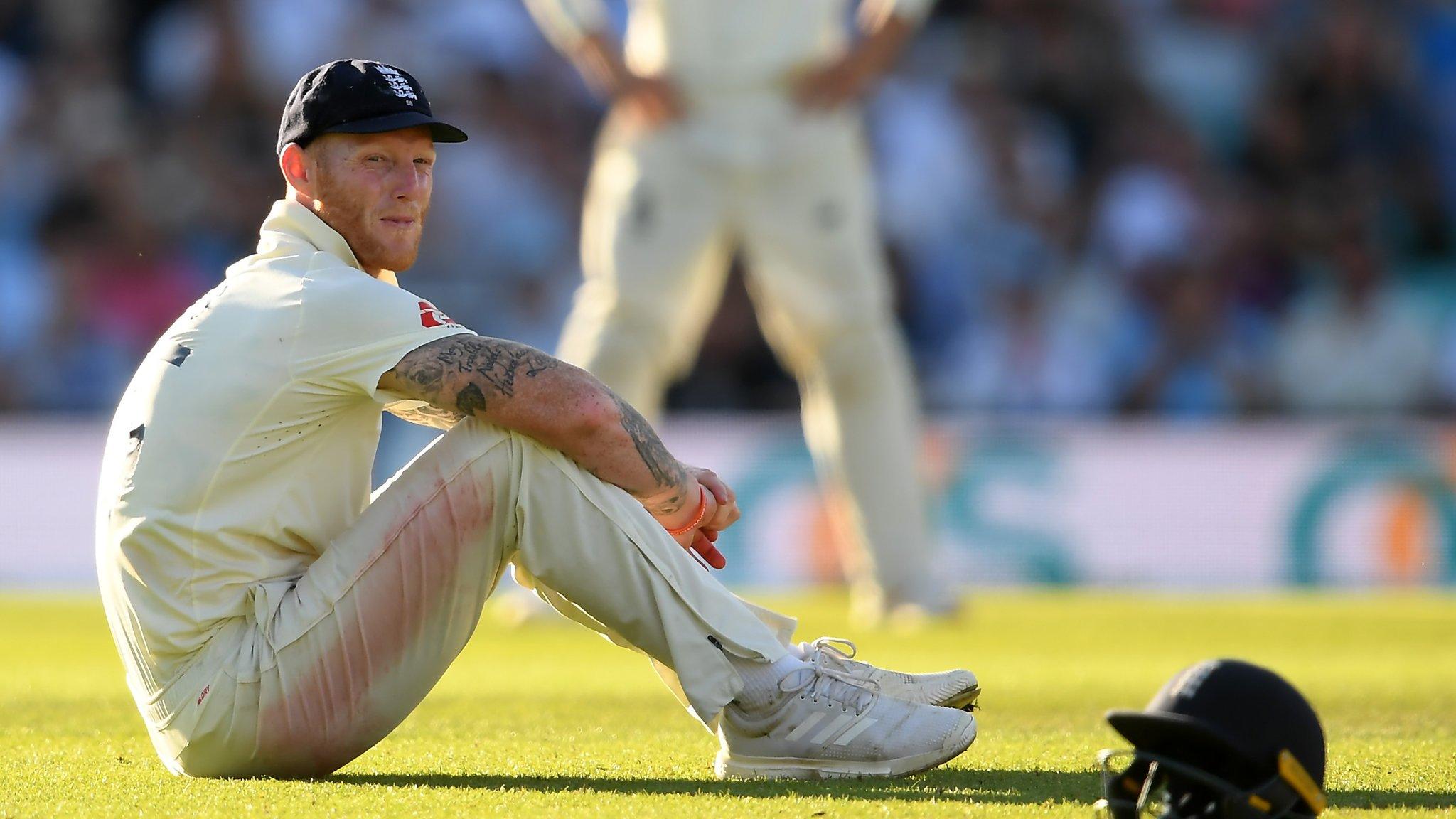Gareth Thomas: Journalist 'told rugby player's parents of HIV'
- Published
"I can never ever, ever get that moment back"
Former rugby player Gareth Thomas has said a journalist spoke to his parents about his HIV status before they had discussed it.
He said he would "absolutely not" have made his diagnosis public if a tabloid had not made threats to publish it.
The ex-Wales captain broke the news on Saturday, the day before finishing an Ironman triathlon.
Thomas was speaking a day after cricketer Ben Stokes criticised the Sun for running a story about his family.
The former British & Irish Lions captain said he had been living in fear of the press publishing details of his HIV status.
And he criticised the fact a reporter approached his parents before the family had discussed it properly.
"Imagine what position that puts me in. I can never, ever, ever have that moment back with my mother and father of sitting down and telling them something so personal to me," he told BBC Breakfast.
"They took that right away from me.
"I'm lucky that I have parents who love me and will support me through anything, but I deserved to have that moment with them."
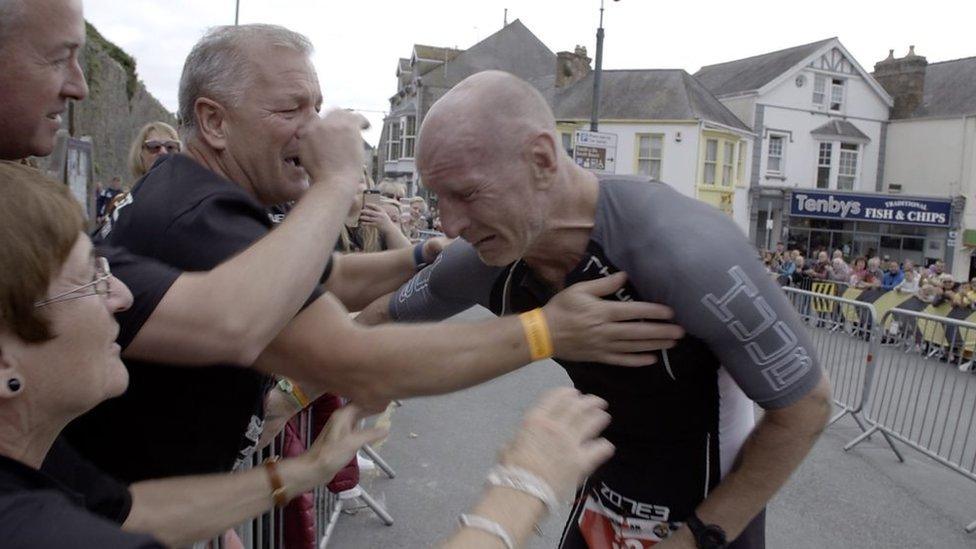
Gareth Thomas completing the triathlon in Tenby on Saturday
The 45-year-old, from Sarn, Bridgend, said keeping a secret had been the hardest part of the diagnosis.
"I've been living in fear of it being published," he told BBC Radio Wales on Wednesday, adding: "The tabloids will create their own law.
"You'll send them a letter and all they'll do is ignore it. I haven't got the money to be able to fight a giant tabloid in court.
"When they do it they'll somehow find justification for doing it. They'll say it's OK, a family member told us something."
In a Twitter, external video, Thomas had said he was compelled to make the announcement after threats were made to him by "evils" to reveal his HIV status.
Asked if he would have spoken about his HIV status without the press involvement, he replied: "I would love to sit here and say yes but I'd be a hypocrite if I did.
"Absolutely not. It's got nothing to do with anyone else."
He spoke out the day after Stokes called a front page story in the Sun newspaper about his family "utterly disgusting" and "the lowest form of journalism".
It had dealt with "deeply personal and traumatic events" that had affected his family in New Zealand more than 30 years ago.
The Sun told the BBC it had received the co-operation of a family member.
'Media ethics'
Damian Collins MP, chairman of the parliamentary Digital, Culture, Media and and Sport committee, told BBC Wales: "I don't believe there is any public interest in putting people under that sort of pressure.
"Putting them in that sort of situation, I think that is a private matter... It should be entirely a decision for [Thomas] to take."
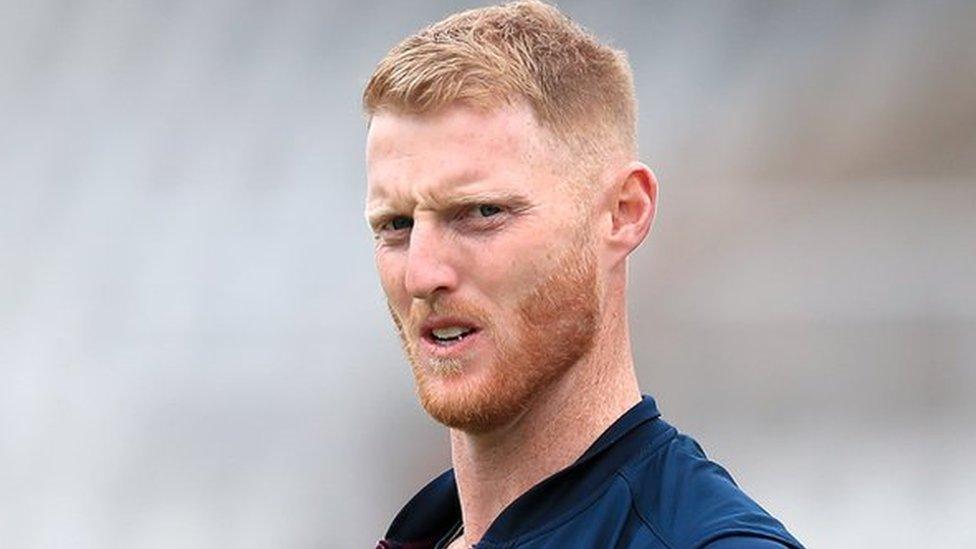
Ben Stokes said he was 'disgusted and appalled' by the Sun's story
Angela Phillips, professor of journalism at Goldsmiths University, London, who gave evidence at the Leveson inquiry into media ethics, said stories like those of Stokes and Thomas were a question of ethics rather than press freedom or the law.
She told BBC Radio 5 Live: "We've now got ourselves into a situation in this country where our tabloid press, partly because of the internet and social media and the way of which stories now travel is that anything that brings in money is justifiable.
"They seem to have lost any sense of whether this story is going to do so much harm to the people whose background you're revealing that you shouldn't touch it with a barge pole."
However, speaking after the Stokes story broke, Ian Murray, executive director of the Society of Editors, said care had to be taken over the principle of a free press.
"I'm not defending the Sun - what I am defending is the principle and saying let's be very careful about what we do."
He continued: "We have a free press. It's such a jewel in the crown of any free society. And there are always the sharks circling, the politicians, the rich, the powerful who would like to see that free press closed down."
'Absolute legend'
On Saturday, Thomas said he wanted to show how people with HIV were misrepresented as needing walking sticks and "close to dying".
The following day he completed the gruelling Ironman in 12 hours and 18 minutes cheered on by crowds and with high emotion along the way.
Since making the announcement, support for Thomas has flooded in.
He spoke to the Duke of Sussex on Tuesday, and said the duke was "passionate about breaking down the stigma so people will go and not be afraid of getting tested".
"We are going to work together," he added.
Prince Harry also posted a message on Instagram, saying: "Gareth, you are an absolute legend! In sharing your story of being HIV+, you are saving lives and shattering stigma, by showing you can be strong and resilient while living with HIV."
Prince William also tweeted his support to the former player.
Allow X content?
This article contains content provided by X. We ask for your permission before anything is loaded, as they may be using cookies and other technologies. You may want to read X’s cookie policy, external and privacy policy, external before accepting. To view this content choose ‘accept and continue’.
Thomas tells his story in a documentary being screened on the BBC on Wednesday.
Gareth Thomas: HIV and Me will be shown on BBC One Wales on Wednesday 18 September at 21:00 BST, and on the BBC iPlayer.
- Published15 September 2019
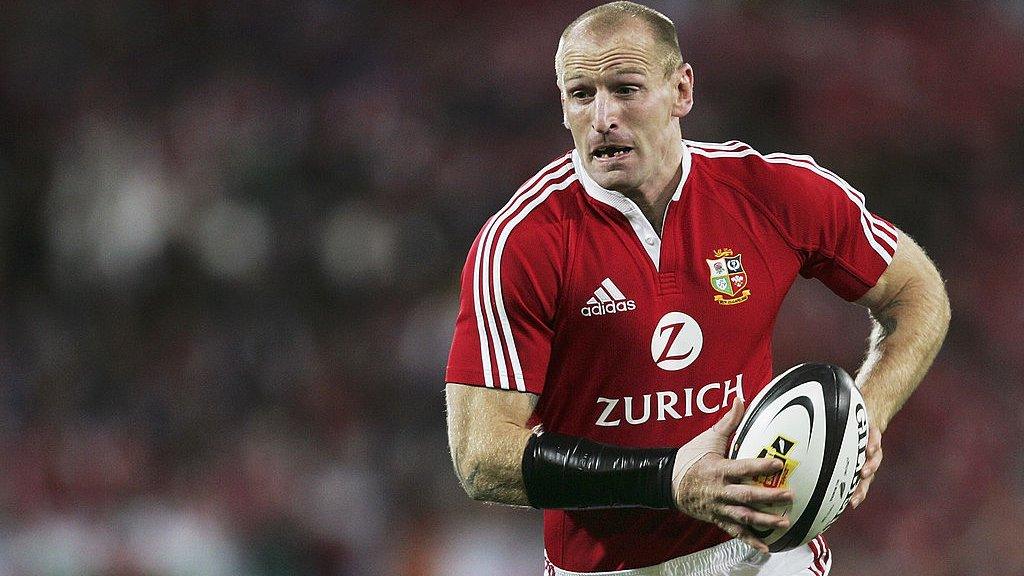
- Published15 September 2019
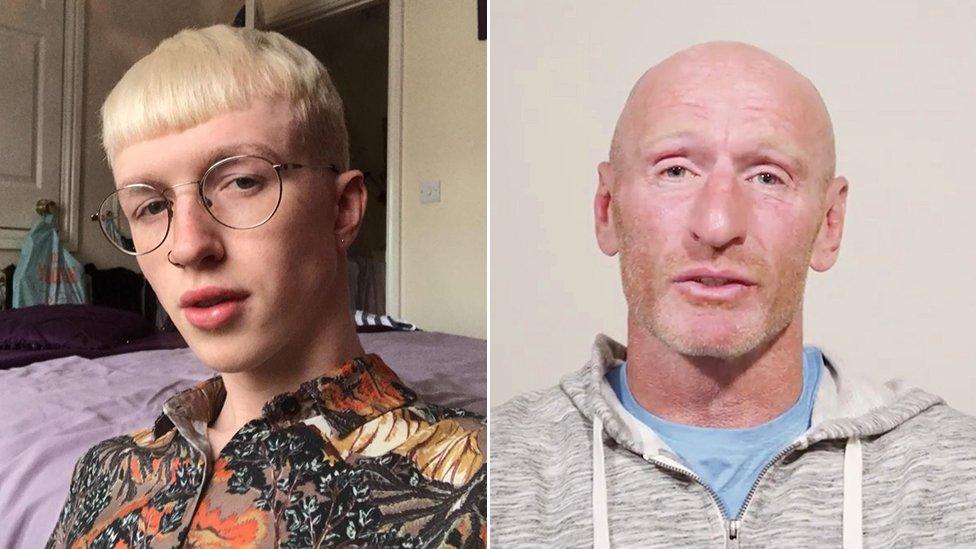
- Published16 September 2019
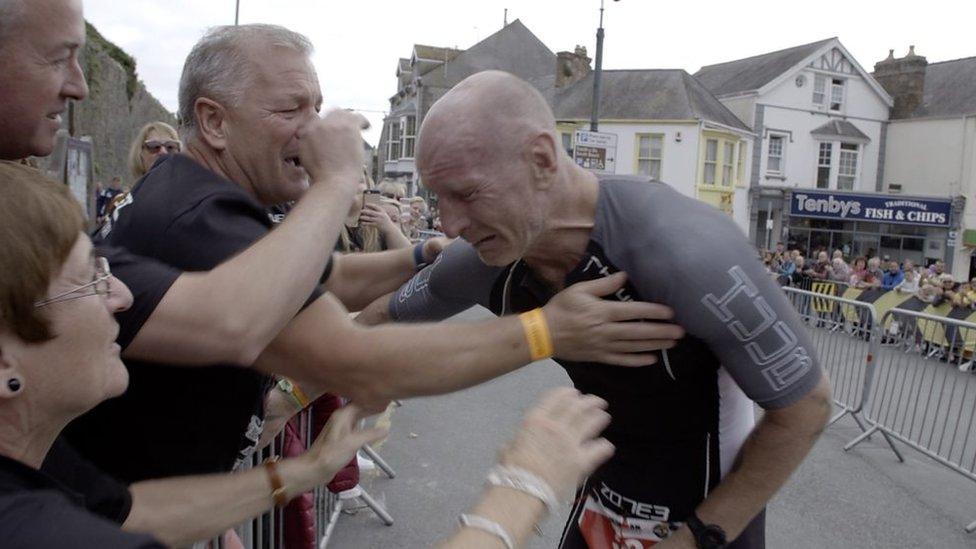
- Attribution
- Published17 September 2019

- Attribution
- Published17 September 2019
